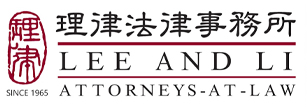Rapid development in artificial intelligence is creating a worldwide legal minefield. This article examines Taiwan’s approach to AI in copyright, finance, government initiatives and data privacy.
AI AND COPYRIGHT
AI has raised concerns regarding copyright protection. The first issue is whether AI-generated work is copyrightable. In 2018, the Taiwan Intellectual Property Office (TIPO) stated that AI-generated results are not copyrightable because the country’s copyright law protects creations by “human beings” only.
With the rise of ChatGPT, the same issue has surged again; once again, copyright protection authorities worldwide have taken the same position. Similar to its US counterpart, the TIPO opines that copyrightability depends on the level of human involvement in the creative process. The greater the degree of participation by a human creator, the greater the likelihood of the work being copyright-protected.
If a creator’s contribution is limited to providing input prompts to an AI system, the work may not be copyright-protected. However, with the light-speed development of generative AI tools and a swamp of used cases, it can be anticipated that determining the required level of human involvement in the creation process will become more and more challenging.

Partner
Lee and Li
Taipei
Tel: +886 2 27638000 ext 2179
Email: kenying@leeandli.com
Training an AI model also raises copyright infringement concerns because the training materials may contain copyrighted works. Copyright holders may well argue that AI developers have not obtained proper licences before feeding their works into AI models. Against this, AI developers may have two key arguments:
- Whether the data employed in generative AI is protected by copyright; and
- If so, whether the output generated through algorithmic learning qualifies as fair use.
There have not been major AI-related copyright lawsuits in Taiwan, but Taiwanese courts will face such cases sooner or later. To facilitate AI technology development, the traditional fair use theory may need to be adjusted. As AI technology advances, creators can also benefit from adopting AI in their creation. All stakeholders must try to strike a balance between AI development and copyright protection.
AI IN FINANCE
In response to the growing trend of using AI technology in Taiwan’s financial market, last December the Financial Supervisory Commission released its draft guidelines on using AI in the financial industry, for public feedback. The draft guidelines were based on the commission’s Core Principles and Related Policies for the Application of AI in the Financial Industry. Below are the six points of the core principles:
- Establish governance and accountability mechanisms. Financial institutions should take internal and external responsibility for the AI systems they use. These include designating senior executives to oversee AI-related activities and establishing internal governance frameworks.
- Emphasise value of fairness and a human-centric approach. Financial institutions should strive to avoid unfairness caused by algorithmic biases in the use of AI systems. The application of AI should be human-centric, respecting the rule of law, democratic values, and human control.
- Protect privacy and customer rights. Financial institutions should fully respect and protect consumer privacy, and properly manage and use customer data.
- Ensure system robustness and security. Financial institutions must ensure the robustness and security of their AI systems to prevent harm to consumers or the financial system.
- Facilitate transparency and interpretability. Financial institutions should ensure the transparency and interpretability of their AI systems. When financial institutions interact directly with consumers using AI, appropriate disclosures should be made.
- Foster sustainable development. Financial institutions should reduce economic and social inequalities, promote inclusive growth, sustainable development and social welfare. Financial institutions should also provide training to their employees during the AI implementation process.

Senior Attorney
Lee and Li
Tel: +886 2 27638000 ext 2360
Email: samhuang@leeandli.com
The commission’s draft guidelines are non-binding administrative guidance to provide a best practice for financial institutions to use AI prudently by introducing a risk-based evaluation framework and approach. When conducting a risk-based evaluation, financial institutions are urged to consider:
- Whether the AI system is directly used for customer services or internal management;
- The sensitivity of personal data;
- The AI system’s level of autonomy;
- The complexity of the AI system;
- The impact on stakeholders; and
- The possibility of seeking relief.
Based on the evaluation results, financial institutions should determine appropriate risk control measures such as maintaining records, establishing approval processes and conducting audits or assessments. The commission’s draft guidelines also emphasise the importance of implementing risk evaluation, supervision and distribution of responsibilities when an AI system is designed or operated by a third-party provider.
GOVERNMENT
Many have hailed recent advancements in AI as the fourth industrial revolution. AI is projected to have a more significant impact on future human lives and industrial development than the previous three industrial revolutions.
To this end, the Taiwanese government launched its AI Taiwan Action Plan (2018-2021) and AI Taiwan Action Plan 2.0 (2023-2026). Each is a four-year plan to develop the nation’s AI industry and propel industrial transformation. This has given domestic industries an edge in the predicted AI revolution, to drive economic development to new heights.

Associate Partner
Lee and Li
Taipei
Tel: +886 2 27638000 ext 2190
Email: lilykuo@leeandli.com
AI Taiwan Action Plans 1.0 and 2.0 focus on:
- Developing AI talent. Universities and research institutes have been training smart-tech researchers for senior-level positions, with more than 10,000 individuals becoming qualified AI technicians and applications specialists each year.
- Liberalising laws and opening test grounds. The Unmanned Vehicles Technology Innovative Experimentation Act has been introduced to regulate self-driving vehicles on land, at sea and in the air. Further, the Taiwan CAR Lab (Connected, Autonomous, Road-test Laboratory), the nation’s first closed field for testing autonomous cars, has been opened for use.
- Transforming industry with AI. AI experts are aligned with industrial needs to create solutions that accelerate innovation and digital transformation. For instance, The Taipei City Government implemented Smart Scale projects to enhance safety and traffic monitoring, incorporating features such as smart lighting, safety alerts and AI-powered vehicle recognition.
- Responding to the impact of AI. In response to the call from society, the action plans stressed the need for AI solutions to help solve problems such as labour shortages, aged societies and the need to improve the quality of life, so that all people can benefit from AI.
Instead of actively implementing government-led AI initiatives in the public sector, we have observed a trend in the past decade for the Taiwanese government to shift its focus to providing a framework and supports for private sectors to develop AI solutions.
Considering the increasing concerns over the risks associated with the expansion of AI such as misinformation, privacy violations and cybersecurity, the AI Taiwan Action Plan 2.0 further seeks to implement regulations that prioritise AI ethics and establish internationally accepted norms and standards to create a reliable operating framework for AI.
DATA PRIVACY

Associate Partner
Taipei
Tel: +886 2 27638000 ext 2158
Email: chilee@leeandli.com
AI tools frequently rely on personal data or attributes to make automated decisions. Unlike the EU General Data Protection Regulation, which not only requires data controllers to disclose the existence of automated decision-making but also grants data subjects the right not to be subject to solely automated decision-making, the Taiwan Personal Data Protection Act does not stipulate similar disclosure requirements or data subject rights.
Nonetheless, to obtain an adequacy decision from the EU, the Taiwanese government has been preparing draft amendments to its act since 2018. Although the draft amendments have yet to be unveiled for public opinion, it is expected that the amended act will align more closely with EU laws, possibly incorporating transparency and interpretability requirements.
Meanwhile, Taiwan’s Financial Supervisory Commission has elaborated the following core principles of data protection in its draft guidelines:
- When using AI systems, financial institutions should strive to avoid unfairness caused by algorithmic biases by: (1) staying alert to potential biases in data sets; and (2) ensuring reasonable grounds for any AI-based decisions relying on personal attributes;
- When using AI systems to provide financial services, financial institutions should protect customer privacy and respect their decision not to use AI-based services, including: (1) adhering to the principle of “data minimisation”; and (2) giving customers alternative options to AI-based services; and
- When using AI systems to interact with customers, financial institutions should ensure transparency and interpretability, including: (1) informing customers about how their rights and benefits may be affected; (2) explaining how AI algorithms operate; and (3) disclosing the prediction or decision-making processes.
Instead of enacting laws to regulate AI at this stage, Taiwan’s government authorities tend to issue guidelines that are essentially non-binding administrative guidance and resort to industry sectors’ self-regulation.
Although not yet officially released and intended only for financial institutions’ reference, to a considerable extent the financial commission’s draft guidelines represent the Taiwanese government’s stance on the use of AI algorithms for processing personal data and potential future requirements.
LEE AND LI
8F, No 555, Sec 4, Zhongxiao E Rd,
Taipei 11072, Taiwan, ROC
Tel: +886 2 2763 8000
Email: attorneys@leeandli.com
www.leeandli.com






























